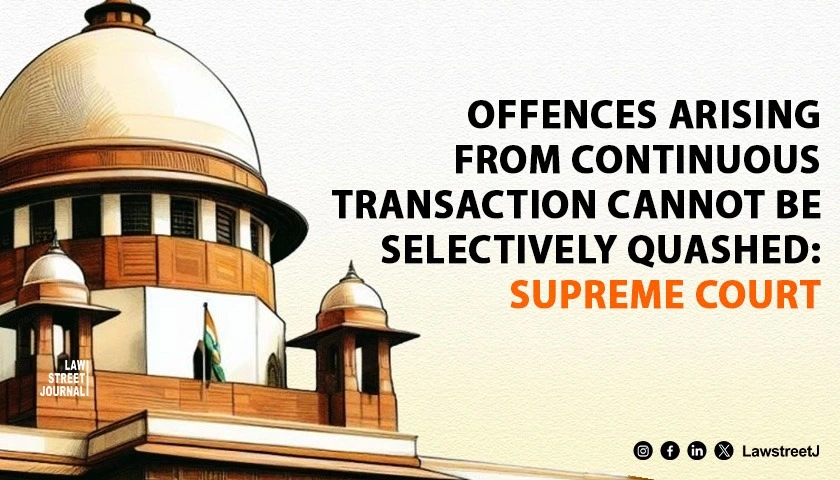New Delhi: The Supreme Court has overturned an order of the Bombay High Court (Aurangabad Bench) that had quashed several offences in an FIR while allowing the dacoity charge to survive, holding that such a split approach was unwarranted when the allegations stemmed from one continuous incident.
The Bench of Justices Vikram Nath and Sandeep Mehta allowed the appeal filed by the accused after noting that the High Court had accepted the compromise between the parties for all other offences but inexplicably permitted the prosecution to proceed only for dacoity.
The FIR related to an incident at P.G. Public School, Nandurbar, where several individuals allegedly entered the premises seeking certain engineering and B.A.M.S. files. The complainant stated that the group temporarily took away cheque books, blank letterheads, stamps, files, cash, and a computer, but later returned all the material. He subsequently affirmed in an affidavit that no injury had been caused, the entire property had been restored, and he did not wish to continue with the criminal proceedings.
While the High Court accepted the compromise and quashed offences relating to hurt, criminal intimidation, and insult, it declined to quash the dacoity charge, taking the view that the school was the victim of that offence and that it was not “personal” to the complainant. It allowed the prosecution to continue for dacoity alone.
The Supreme Court, however, disagreed with this approach. Referring to the record, the Court noted that the allegations themselves showed that the group had entered the school for the purpose of locating specific files, and not with any intent to permanently deprive the institution of property. The Court pointed out that the subsequent return of cash, documents, and other items, as affirmed by the complainant in his affidavit, completely undercut the allegation of dishonest intention. It further observed that the incident appeared to arise out of a dispute over possession of documents and that the acts complained of were at best incidental to that objective.
The Court emphasised that all allegations arose from a single chain of events. In its words, “the factual matrix forming the basis of all the offences is inseparable and arises from a single transaction.” It further noted that once the High Court had accepted the complainant’s affidavit as genuine for the purpose of quashing the other offences, “there was no justification whatsoever” for sustaining the dacoity charge drawn from the same facts.
Highlighting the inconsistency, the Court observed that the compromise which had been treated as sufficient to quash the other offences “equally dilutes the foundation of the charge of dacoity.” The Court added that the conduct described in the FIR did not indicate the kind of wrongful gain or dishonest intention that is an essential ingredient of robbery or its aggravated form, dacoity.
Concluding that the High Court’s partial quashing was unsustainable, the Supreme Court quashed the FIR in its entirety, doing so in exercise of its powers under Article 142 of the Constitution. All proceedings arising from the FIR were ordered to stand terminated.
Appearance:
The appellants were represented by Mr. V.V.V. Pattabhiram, Deputy Advocate General, assisted by Ms. Mrinal Gopal Elker, AOR, and Mr. Amit Sharma, Advocate.
The respondents were represented by Mr. Raghvendra Kumar, AOR, assisted by Mr. Devvrat Singh, Advocate.
Case Title: Prashant Prakash Ratnaparki & Ors. v. State of Maharashtra & Anr.











